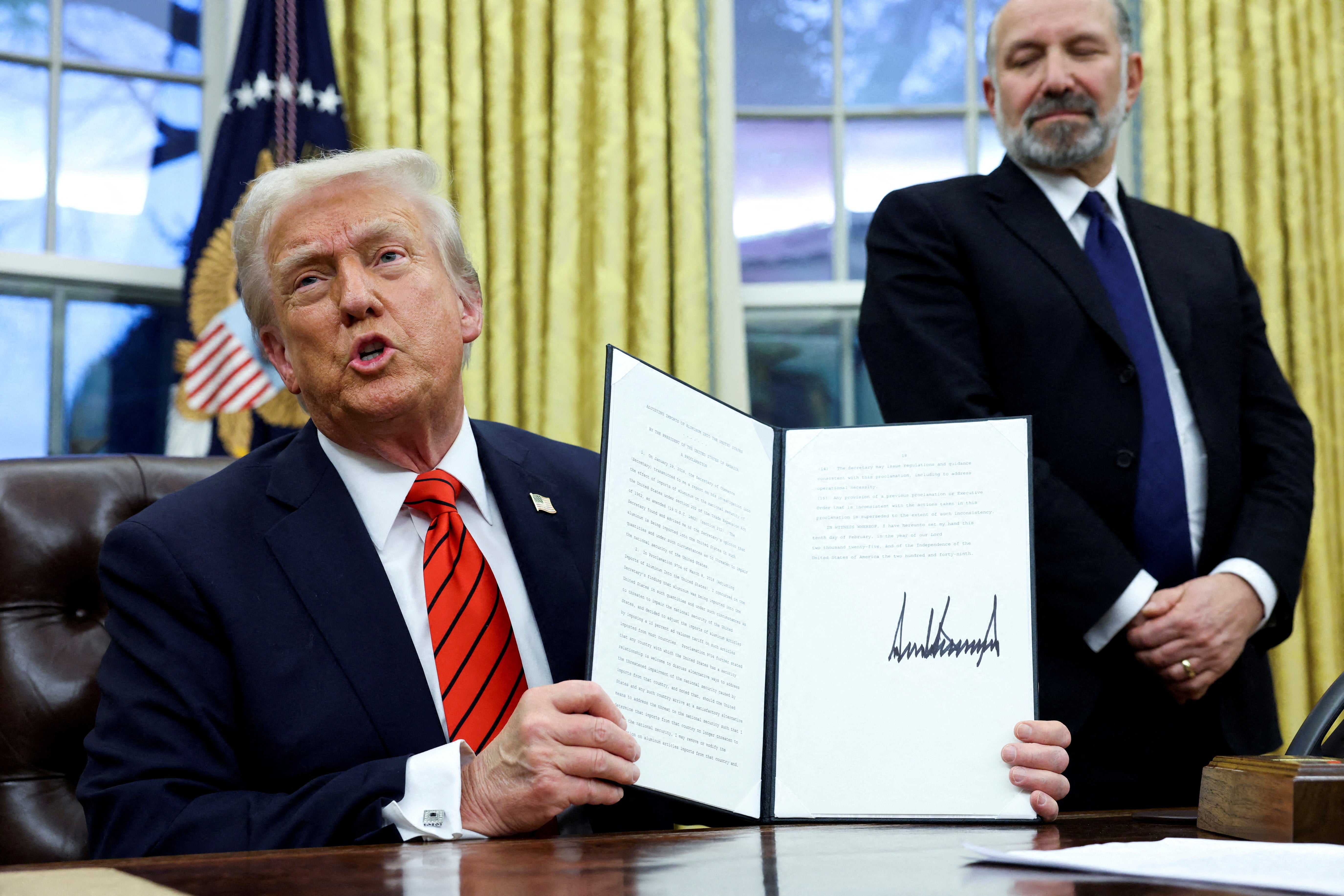White House aide Stephen Miller has suggested that any number of “media outlets” could take over the Associated Press's position within the White House press corp, including unnamed “extraordinary independent” press groups.
Miller made the comment on Saturday following backlash to Donald Trump’s administration barring AP reporters from presidential events over the agency’s refusal to call the Gulf of Mexico the “Gulf of America” in its coverage.
“There are countless media outlets, journalists and reporters who have never had access to the White House — including extraordinary independent media orgs — who have never had access to the White House,” wrote Miller, a White House deputy chief of staff for policy and a key figure in the administration’s far-right agenda setting. “Any of them would gladly take AP’s legacy slot.”
The Associated Press — often abbreviated to the AP — is a best known as a robust journalistic news provider. The agency staffs reporters across the globe, and many of its stories either are fully reproduced in publications across the nation or serve as the base reporting for local, regional, and national reporting.
Though perhaps lesser know to the public at large, the AP is just as much a foundational element of modern American journalism as the The New York Times or The Washington Post.
On Tuesday, the Trump administration barred AP journalists from events in the Oval Office and on Air Force One, citing the service’s refusal to change the name of the Gulf to reflect Trump’s executive order renaming it the Gulf of America.
“The Associated Press continues to ignore the lawful geographic name change of the Gulf of America. This decision is not just divisive, but it also exposes the Associated Press’ commitment to misinformation,” White House deputy chief of staff for communications Taylor Budowich said in a statement on Friday.
The statement further accused the AP of “irresponsible and dishonest reporting.”
“While their right to irresponsible and dishonest reporting is protected by the First Amendment, it does not ensure their privilege of unfettered access to limited spaces, like the Oval Office and Air Force One,” the statement said.
Budowich, like Miller, said the AP’s spot would be filled by other reporters, but noted that AP reporters and photographers would still have their credentials to operate at the White House, excluding the Oval Office.
The White House Correspondents Association, which represents reporters who cover the president, have opposed the move, calling it “unacceptable” and an infringement on the rights of the press.
“The White House cannot dictate how news organizations report the news, nor should it penalize working journalists because it is unhappy with their editors’ decisions,” Eugene Daniels, president of the WHCA, said in a statement. “The move by the administration to bar a reporter from The Associated Press from an official event open to news coverage today is unacceptable.”

Reuters, another global and well-known news reporting service, stood in solidarity with the AP, posting a message on Saturday expressing its dismay with the Trump administration's decision.
“Reuters stands with the Associated Press and other media organizations in objecting to coverage restrictions imposed by the White House on the AP, because of the AP's independent editorial decisions,” the statement said. “Reuters believes that journalists should be free to report the news reliably, independently, and without harassment or harm, wherever they are, including in the United States.”
AP executive editor Julie Pace said the move by the Trump White House was “alarming” and “plainly violates the First Amendment.”
The AP's empty spot will likely be filled by a Trump-friendly media organization if other actions taken by the administration are any indication of its direction.
The Department of Defense announced earlier this month that news outlets with longstanding reporting stations inside the Pentagon — including NBC News and The New York Times — will be rotated out to make room for far-right organizations like Breitbart News and One America News Network, which broadcasts a constant and full-throated support for Trump.
On January 28, Trump's press secretary Karoline Leavitt announced that the White House would expand its seating for “new media voices,” but it’s unlikely that contrarian voices — like leftist or newer progressive-aligned news outlets — will be extended an invitation.
Tom Jones, a senior media writer for journalism site Poynter, said that making space for new voices was good — so long as those voices aren’t expressly brought on to be cheerleaders for the administration.
“The caveat is if the White House new spots are given to those who are merely Trump and MAGA sycophants who call themselves media just because they carry a microphone or a laptop. If that’s the case, the idea of a ‘new media’ seat is counterproductive,” Jones told The Wrap. “In the end, these are press conferences, not pep rallies.”







